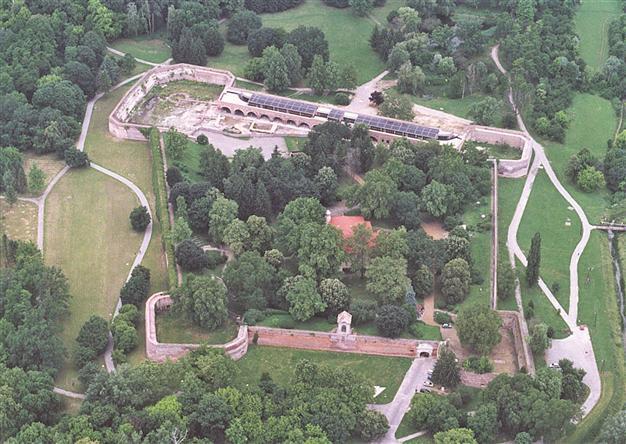Resting place of Süleyman the Magnificent’s organs reportedly found in Hungary
SZIGETVAR

The location where the internal organs of 16th century Ottoman Sultan Süleyman the Magnificent were buried has been discovered in southern Hungary, daily Hürriyet has reported.
The sultan died in 1566 during the siege of the Szigetvar Fortress.
An official of the fortress, Janos Lebedi, said excavations to find the organs have been ongoing for two years in 18 spots around Szigetvar, but now the search has been narrowed down to just one spot. The suspected resting place of the organs is a vineyard in the city’s highest spot, seven kilometers away from the Szigetvar Fortress.

Lebedi said an excavation had already been conducted in the 40-meter-long and 10-meter-wide vineyard in 1972. During this excavation, three Ottoman structures were found as well as Ottoman roof tiles, pottery and green ceramics.
“The communist regime of the time, which carried out the excavations, kept it a secret. But these findings can be seen in every part of the vineyard. The archived documents also show that there was an Ottoman bastion here, stating that the internal organs of Sultan Süleyman were buried there.
Mehmet İnceoğlu, the president of the Union of European Turkish Democrats (UETD), which is affiliated with Turkey’s ruling Justice and Development Party (AKP), said detailed studies had come to an end and the location of the organs has been precisely determined.
“Excavations will start there in a short space of time, with the support of both the Turkish and Hungarian governments. If we get positive results, a tomb will be established there,” İnceoğlu said.
Historical sources record that Sultan Süleyman’s body was temporarily mummified and buried under his bed at his imperial tent near the fortress, after his heart and internal organs were removed for the mummifying process. The body was then transferred to Istanbul, while the organs remained in Hungary.
A shrine built by Sultan Selim II at the site of his father’s temporary tomb in 1577 was plundered and demolished by the invading Austrians in 1693, leading to the current confusion about its whereabouts.
 The location where the internal organs of 16th century Ottoman Sultan Süleyman the Magnificent were buried has been discovered in southern Hungary, daily Hürriyet has reported.
The location where the internal organs of 16th century Ottoman Sultan Süleyman the Magnificent were buried has been discovered in southern Hungary, daily Hürriyet has reported. Lebedi said an excavation had already been conducted in the 40-meter-long and 10-meter-wide vineyard in 1972. During this excavation, three Ottoman structures were found as well as Ottoman roof tiles, pottery and green ceramics.
Lebedi said an excavation had already been conducted in the 40-meter-long and 10-meter-wide vineyard in 1972. During this excavation, three Ottoman structures were found as well as Ottoman roof tiles, pottery and green ceramics.